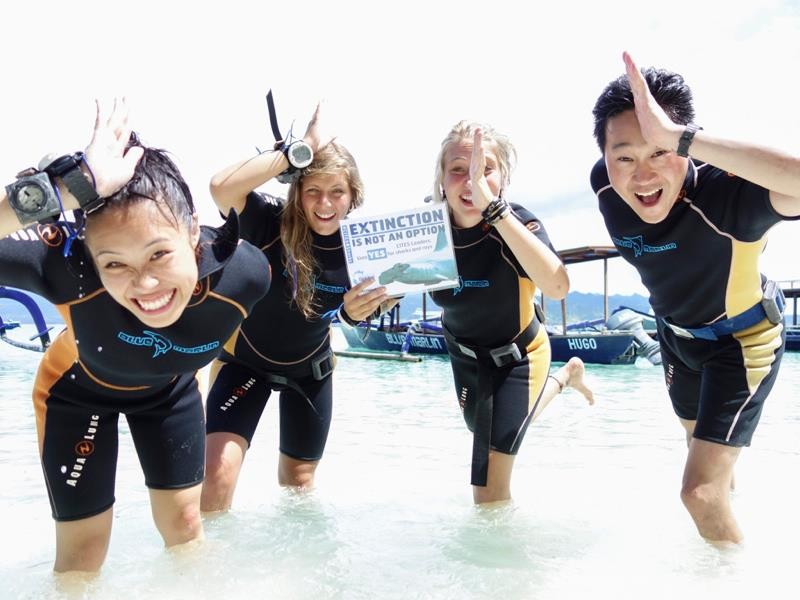#CITES4SHARKS: Questions Answered

The buzz is building. The meeting of the member countries to CITES this 3-14 March is just days away. As we sprint toward the main event, where officials will consider 70 proposals to protect species, including commercially valuable oceanic whitetip sharks, hammerheads, porbeagles sharks, manta rays and freshwater sawfish - we know we’re up for some tough battles ahead.
This week, we asked Ania Budziak, Associate Director of Science and Policy and Project AWARE staffer on the front lines of our program work, to answer some top CITES-related questions.
Q: Why should we be concerned about international trade in plant and animal products?
A:We live in a world where we buy and sell virtually everything from everywhere. Wild plants and animals are no exception and their trade is valued at billions a year. We ship exotic woods from the Amazon to Hamburg, Germany, where I live. Porbeagle shark fins and meat make their way to tables in Europe, China and elsewhere. When international trade threatens a species’ survival, as it is in the case of CITES listed species, it must be monitored and controlled.
Q: How will protections under CITES make a difference for sharks and rays?
A:Most shark and ray fishing and trade is either insufficiently controlled or completely unregulated. Healthy shark and ray populations support tourism, which in some coastal communities, territories and states around the world, underpins entire economies and its benefits are yet to be fully realized. So CITES action is key, not only to keeping shark populations healthy, but also to long-term economic benefits that can be drawn from these populations.
Q: Why do the voices of divers matter in difficult, political battles like this one?
A:We’re an important stakeholder group whose consolidated voice has not been heard at this level of decision-making before. As a global, economically significant group, scuba divers are in a unique position to highlight the value of keeping sharks and rays populations healthy. I am privileged to be able to represent the scuba diver voice and I’m very hopeful that the upcoming meeting will bring about much needed protections for some of the most vulnerable sharks and rays.
How can you help?Sign the shark petition. Already signed? Send a letter direct to CITES leaders asking them to vote “Yes” for sharks and rays this March. We won’t have another chance at this for few years. And sharks can’t afford to wait.



